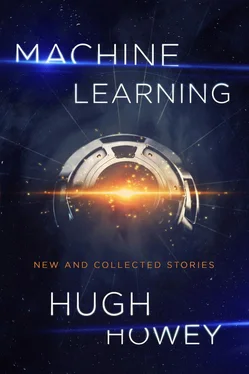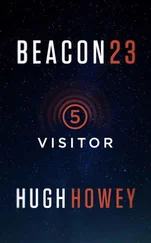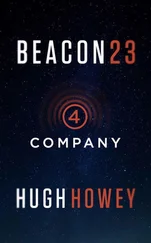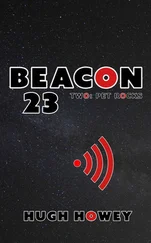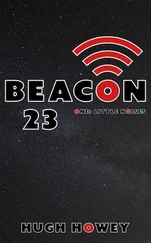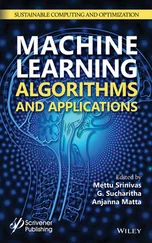When the money ran out, I got work on other people’s boats. They started small, but someone would ask if I could drive a bigger boat, and I figured the general principles were the same. This was a very surreal transition in my life. I went from a half-starved kid on a twenty-seven-foot sailboat with no toilet and no shower to a clean-shaven guy in pressed uniforms who drove mega-yachts for the mega-wealthy. These boats had hot tubs on top and garages full of smaller boats in their bellies. The helms looked like spaceships, like the cockpit of a jetliner on steroids. I moved these large machines from one place to another and fixed anything that broke along the way. I had found my truck-driving job at last!
The next decade of my life was spent on yachts like this. Much of that time I sat at the helm and stared at the horizon, lost in my thoughts. Hours and hours of horizons and daydreams. Night shifts with stars so bright, you could read by them. Flat seas that reflected these pinpricks until I was surrounded by stars, floating in deep space. With these years of staring at the horizon, I realized that my fascination with the future and my inability to sit still come from the same insatiable curiosity: I want to know what’s around the corner. I strain for it, not content for it to come to me. The futurist and the vagabond are the same souls—one in body and the other in thought.
My love of science fiction comes from the same place. With science fiction, we dream about what’s around the corner. We use the genre as a warning, or as a way to explore time, space, and progress. The same people who crossed seas in bygone eras, or rode wagons out west, or put men on the moon are now dreaming about humanity on Mars and beyond. These are probably the same tinkerers who fashioned better spear points or learned to sew and make fire. What’s next? What’s out there? These questions haunt me.
The stories you’re about to read are my attempts to answer these questions. Many of them were written during a sedentary period of my life, while I was working in a bookstore and writing my first novels. There are recurring themes here that I was dimly aware of when I was writing them but have become stark now that they’ve been collected into one place. A couple of these stories are new. The rest have been published in so many scattered ways and places that I doubt anyone has seen them all before.
When I look at this body of work, and the more than a dozen novels I’ve written, I feel once again like that kid at the helm of a boat much too large for his qualifications. I honestly don’t understand how I’ve gotten here. One step at a time, I suppose. One sentence after the other. One daydream, one idea, an early morning writing before I have to go to work… and eventually you get to a place that might’ve humbled me if I’d thought about it all at once.
My sailing trip around the world has progressed much the same way. Besides wanting to be a truck driver (or Han Solo), I’ve had two impossible fantasies at the very top of my bucket list. One was to write a novel; the other was to sail around the world. As I write this in March 2017, I’m sitting on my boat off of Isabela Island in the Galápagos. I sailed here from South Africa, going as far north as Maine, spending a month in Cuba, and just recently crossing through the Panama Canal. I’m halfway through my voyage, and what seemed unlikely in the whole has been slowly achieved one horizon at a time.
And isn’t this true for humanity at large? We live in a world not of science fiction, but of science fact. I will upload this introduction to my publisher via the ether. I live on a solar-powered machine not much less remarkable than the Millennium Falcon . When I look at gleaming cityscapes of glass towers touching the clouds, it strikes me that a band of several hundred primates spread out and built all of this from what we dug out of the mud. Out of the mud.
Is it possible to doubt where we might go, seeing how far we’ve come? We do the impossible daily. We are creeping ever toward that unreachable horizon. I wonder what we’ll find when we get there.
The Walk up Nameless Ridge
1
It was difficult to sleep at night, wishing good men dead. This was but one of the hurtful things I felt in my bones and wished I could ignore. It was an ugly truth waving its arms that I turned my gaze from, that I didn’t like to admit even to myself. But while my bag warmed me with the last of its power and my breath spilled out in white plumes toward the roof of our tent, while the flicker of a whisper stove melted snow for midnight tea, I lay in that dead zone above sixty thousand feet and hoped not just for the failure of those above me, but that no man summit and live to tell the tale. Not before I had my chance.
It was a shameful admission, one I nearly raised with Hanson, my tent mate, to see in the wrinkles of his snow-beat face whether this was a guilt shared. I suspected it was. In the mess tents and around the yellow craters we dubbed latrines, the look among us was that only one would be remembered. The rest would die alone in the snow or live a long life forgotten—and not one of us would’ve been able to explain to a child the difference. Frozen to death by altitude or by time was all the same. The truth was this: History remembers the first, and only the first. These are the creeping and eternal glaciers, the names etched across all time like scars in granite cliffs. Those who came after were the inch or two of snowdrift that would melt in due time. They would trickle, forgotten, into the pores of the earth, be swallowed, and melt snow at the feet of other forgotten men.
It was a quarter past Eno’s midnight and time to get up. If Shubert and Humphries were to make it to the top, they likely would’ve by now. If any of their gear still worked, they would be radioing in their victory, taking the first pictures of starlit peaks wrinkling far past the limits of sight. By now, they would know how many fingers and toes it cost them, how much oxygen was left in their tanks, whether or not they would live to speak of the mountain’s conquest.
The faint odor of tea penetrated my dark thoughts. It must’ve been a potent brew to smell it at all. We had already scaled beyond the heights where taste and scent fade to oblivion. One had to remind himself to eat and drink, for the stomach is one of those organs that knows when to quit. It is the first, in fact, to go. The mind of the climber is the last.
Hanson brought me tea. I wormed a single arm out into the cold, though my heating bag had become a feeble thing. I did not want to lose what little it held. I coughed into my fist, that persistent cough of the dead zone, and accepted the steaming mug.
There were no words spoken as we forced ourselves to drink. Every twitch was an effort at those altitudes. We were sleeping higher than all the fabled peaks of Cirrus VII. Our fourth camp along the Slopeson Ridge, at 42,880 feet, was higher than any speck of dirt on Hanson’s home planet. And when we arrived on this wasteland of a frozen ball, out here in a corner of the galaxy where men go either to not be found or to be remembered for all time, we set up a base camp very near to the highest peak of the place I grew up: Earth. Where men were first born and first began to scale to deadly heights.
I sipped my tea, burning my numb lips, and told myself it would be an Earth-born who scaled Mount Mallory first. This was a distasteful idea that I and many others were willing to share. The secret I kept to myself was that others could die if they dared climb her before me.
2
Two other private teams were making a go of it that season. Government expeditions and collectives of alpine clubs had given up decades ago. They now watched as men such as I took leave of our day jobs and, with borrowed funds and the best of gear and medicine at hand, set out to prove what was possible.
Читать дальше
